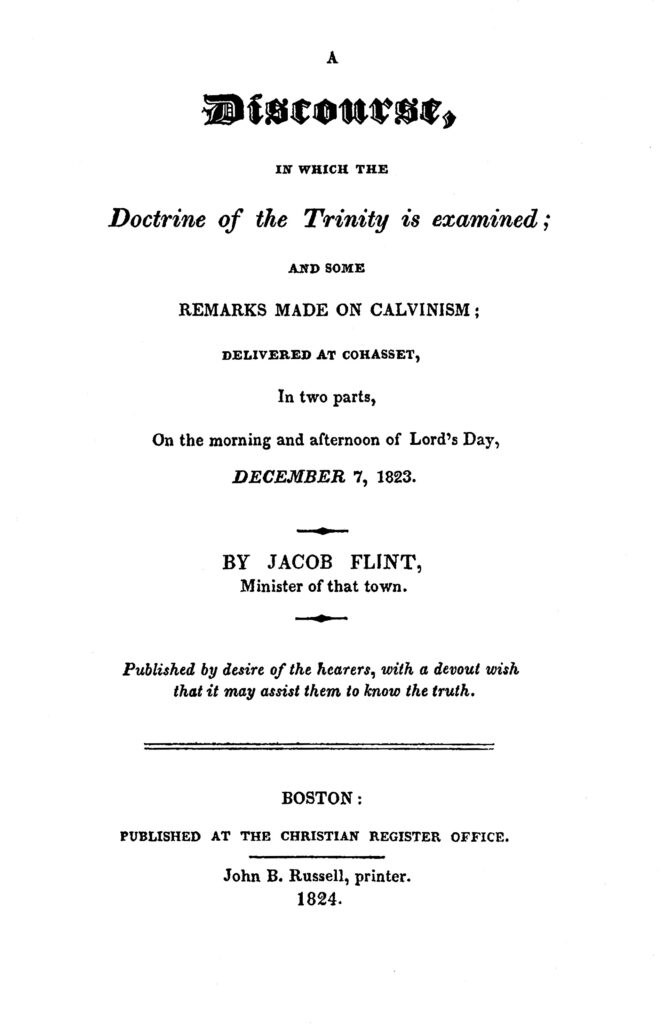Back in 1823, Rev. Jacob Flint was the minister of the one church that then existed in Cohasset, Mass. He had been ordained in Cohasset in 1798. He was fairly liberal to begin with, but over the quarter of a century he served the congregation he had become an outright Unitarian. So on December 7, Flint decided to preach a sermon on Unitarianism.
I can imagine the scene. He preached this sermon in the Meetinghouse that we still use today, but the old box pews were still in use in 1823. Wood stoves had been put in the Meetinghouse for the first time the previous year, in 1822, so at least people would have been relatively warm for the two lengthy sermons that were delivered each week. Flint would have climbed up into the high pulpit, suspended halfway between the main floor and the gallery. Sadly, he was not a good speaker — John Adams wrote that “his elocution is so languid and drawling that it does great injustice to his composition” (John Adams, Diary, 19 Sept. 1830).
Despite his poor elocution, at least some people in the congregation must have been paying close attention to this day-long Unitarian sermon. Within months the Trinitarians had left in a body to start building their own church just a hundred feet away across the town common. I can just imagine how angry the Trinitarians were after the morning service on December 7, 1823, and how little they looked forward to the second sermon in the afternoon when they would hear even more about how wrong the doctrine of the Trinity was. How they must have steamed and stewed as Flint preached, especially since his preaching seems specially designed to infuriate anyone with Trinitarian leanings.
But this was probably to be expected of Flint, who was an uncompromising man. Years later, Capt. Charles Tyng remembered a time from his boyhood when he had to live in Flint’s house:
“…I was then put under the charge of the Rev. Dr. Jacob Flint, the minister at Cohasset. I soon found that the change was from the frying pan to the fire. Doctor Flint was a large man with a forbidding countenance. He was morose & cross in his family, which consisted of his wife, three sons, and an infant daughter…. I dreaded Sunday, the Dr. was so very strict, made us boys sit in the house, reading our Bibles, or learning hymns…. Dr. Flint was a tyrannical man, and very severe, particularly with his own children. Hardly a day passed without his whipping them. Us Boston boys did not get it so often, although I often felt the effects of the rod. He probably was deterred from whipping those who boarded with him, as his disposition would have induced him, had he not thought our parents would take us away.” (Charles Tyng, Before the Wind: The Memoir of an American Sea Captain, 1808-1833, chapter 1.)
With that preface, here’s the first part of Flint’s divisive Unitarian sermon of December 7, 1823:

